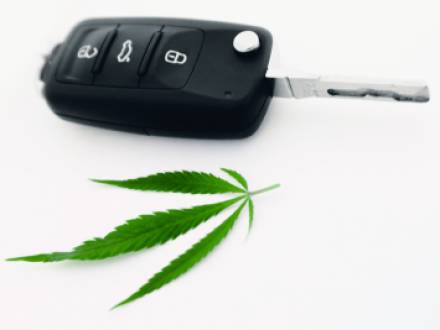 Marijuana use is on the rise throughout the United States, with multiple states, including Connecticut, having legalized the drug for recreational use. This has raised concerns about roadway safety, since driving while under the influence of marijuana can be just as dangerous as driving while under the influence of alcohol. While police may be on the lookout for people who drive while high, determining whether a person is intoxicated and can be charged with DUI is often easier said than done.
Marijuana use is on the rise throughout the United States, with multiple states, including Connecticut, having legalized the drug for recreational use. This has raised concerns about roadway safety, since driving while under the influence of marijuana can be just as dangerous as driving while under the influence of alcohol. While police may be on the lookout for people who drive while high, determining whether a person is intoxicated and can be charged with DUI is often easier said than done.
As police take steps to address marijuana intoxication, more people may be arrested for DUI. Fortunately, there are defenses available in these situations, and people who are charged with marijuana DUI may be able to challenge the evidence against them and avoid convictions. In these situations, it is important to work with an East Hartford, CT criminal defense attorney who understands police procedures, testing reliability, and ideal defense strategies.
When someone has been drinking alcohol, it is relatively easy to determine whether they are intoxicated. The legal limit for blood alcohol concentration (BAC), .08 percent, is the point at which someone begins to feel effects that can cause them to make dangerous mistakes while driving. A breathalyzer test provides a good estimate of a driver’s BAC, and if they are over the legal limit, they may be charged with DUI.
However, there are no equivalent tests that can determine whether a driver is intoxicated after using marijuana. While some tests may be able to determine the amount of THC (the ingredient in marijuana that causes a "high") in a person’s system, this does not actually indicate whether a person is intoxicated. After consuming marijuana, THC may stay in a person’s body for several weeks, long past the point when they would feel any effects. THC also affects people differently. People who regularly use marijuana may have a high tolerance for THC, while others may become impaired even if they have smaller amounts of THC in their system.
Despite these concerns, police departments throughout the United States are attempting to find ways to test drivers to determine whether they are impaired due to the use of marijuana. These include devices that test a driver’s saliva for the presence of THC, breathalyzers meant to detect marijuana use, and even goggles that measure whether a person’s eyes are dilated. Other potential solutions include apps that are meant to test drivers’ cognitive abilities. No definitive solution has been found, and in some cases, the systems currently being used may lead to false positives, causing people to be arrested for DUI when they are not intoxicated.
Since Connecticut legalized marijuana for recreational use in 2021, law enforcement officials have worked to find solutions for how they can determine whether drivers are impaired due to the use of the drug. Without a legal limit for THC or a standardized test to determine a driver’s level of impairment, these cases typically rely on drug recognition experts (DREs) who are trained to recognize the signs that a person is under the influence of marijuana or other substances. However, the opinions of DREs are highly subjective, and they may not serve as conclusive evidence of intoxication.
Because it is so difficult to determine whether a driver was intoxicated due to the use of marijuana, people who are charged with DUI based on the use of the drug have good options for defense. At Woolf & Ross Law Firm, LLC, our skilled Hartford, CT marijuana DUI attorneys can challenge evidence such as blood or saliva tests, and we can review statements by drug recognition experts to show that their determinations were inconclusive. We will work to have DUI charges dismissed whenever possible. To get legal help with your defense against DUI charges, contact us at 860-290-8690 and arrange a free consultation.
 50 Founders Plaza
50 Founders Plaza

